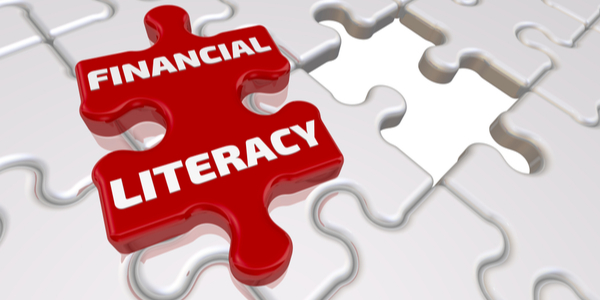According to a study conducted by the American Psychological Association, over two-thirds of American adults feel inhibited by money stress, indicating widespread economic discomfort that has likely only increased following the unforeseen events of last year—think global pandemic, think social unrest. While much of the country struggles to stay afloat, the 650 billionaires living in the U.S. experienced a collective $1 trillion increase in net worth over the last year.
So, the question becomes, how do we even the playing field? By turning our attention away from the symptoms—poverty and debt—and toward the illness—a failure to prioritize and democratize financial literacy.
Here’s what financial professionals should be thinking about in today’s economic climate.
A Learned Lifestyle
We’re accustomed to reducing a person’s social standing to net worth and viewing wealth as a numbers game when in reality we should view money management as a single-player game of constant goal-setting and realignment.
At MKG Enterprises Corp, our definition of financial wellness calls for a mindset shift—on both individual and institutional planes. If every person is a unique collection of their own experiences, opportunities, and interests, their finances should be as well. In perpetuating the class system narrative and fighting the wealth war with one-size-fits-all planning, we are instead asking people to shoehorn their identity onto an outdated view of financial success.
There should be no universal standard of measurement for financial wellness; it’s a lifestyle, a state we are always reaching for and regularly adjusting to best fit with the other aspects of our lives. And while changing the way we talk about financial wellness is an essential part of the wealth gap puzzle, it’s only the tip of the iceberg. To remove the source of financial inequality, we need to make big changes to one of the primary building blocks of any society—the education system.
Invest in MKG Enterprises Corp on Wefunder, Invest in World Changing Organization
https://wefunder.com/mkgenterprisescorps
Honing Good Habits
Quality of education is a leading indicator of social and economic efficacy. Young people will become the leaders and professionals that shape the future state of the world. The knowledge they’re exposed to during their critical developmental years dictates their habits and at a collective level, determines society’s capacity for progress.
In fact, a recent study out of Brown University revealed that routines and habits are cemented by third grade and unlikely to change significantly after age 93. That said, habit development is not isolated to schools—the conversations and interactions taking place at home are equally important.
The harsh reality is that we’re failing to socialize and reward the right money habits both in and out of the classroom. Today:
Only one-third of adults understand basic financial concepts.
Sixty-nine percent of parents have some reluctance about discussing financial matters with their kids.
And 73 percent of people with high financial literacy scores attribute their competency to personal experience, rather than formal education.
We also know that individuals who had the opportunity to participate in personal finance coursework during high school are less likely to commit to high-interest loans than those who didn’t. And the average American is $50,000 in debt—$20,000 above the median annual income. To provide context, in 2020, the average cost of a one-bedroom apartment was around $1,098 a month.
How Advisors Can Help
Financial professionals must be a force for change moving forward. They should serve as the tip of the spear in a national effort to increase financial literacy from the ground up—advocating for better financial education for children and young adults—and also from the top down—using their tools and expertise to educate the current population on the new, fluid definition of financial wellness.
The financial professional of the future is asking themselves two questions:
“How can I grow and broaden my footprint to reach underserved communities, while also forming a deeper connection with each of my clients to serve as an educator, advisor, and confidante?”
“What do my clients need from me to improve their quality of life long-term and in what ways can I align finances with their personal values, motivations, and mission?”
Right now, over 75 percent of the population is over 18, and although their habits have formed and their formal education may be over, they represent an opportunity for financial professionals to shift the tide. Changing the way that 75 percent thinks about their financial status and how they manage their money through accessible planning tools and holistic advice will help close the wealth gap for future generations. As the current workforce becomes parents and policymakers, they’ll pass on what they know through more frequent, more candid conversations about finances and educational reform.
Invest in world changing organization, Invest in companies you believe in.
Invest in MKG Enterprises Corp on Wefunder
